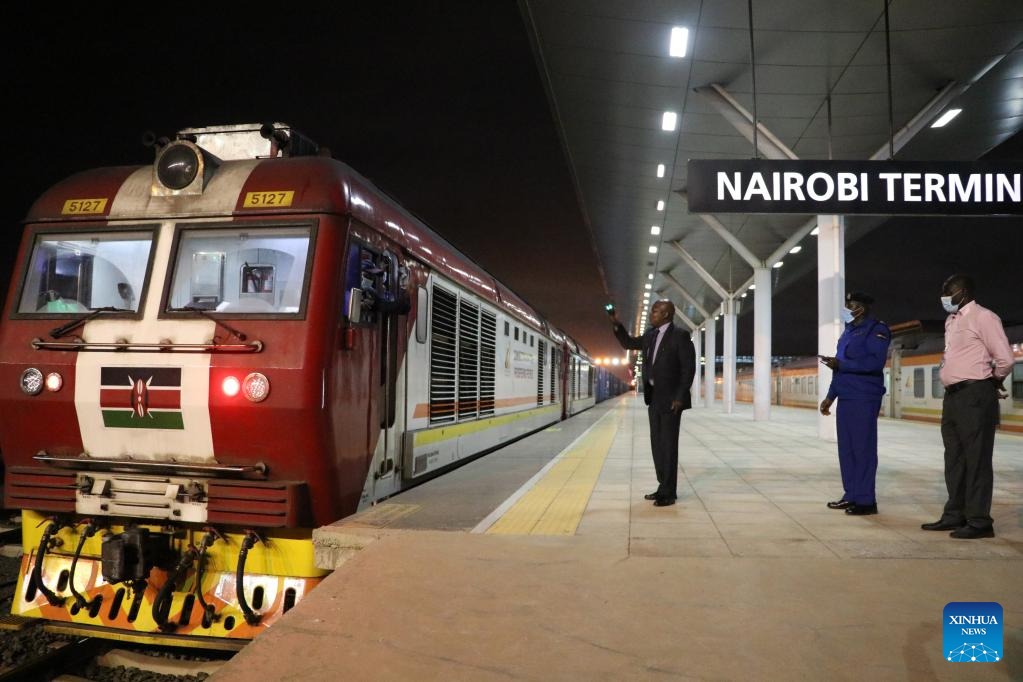Africans keep focus on key partnership
'Debt trap' smears rejected as gains from China-backed projects embraced


'Debt trap' smears rejected as gains from China-backed projects embraced
Africans have little time for the attempts by many in the West to smear China with the accusation that it is creating debt traps with its development partnerships in the continent. Instead, they remain focused on the benefits that Chinese-backed infrastructure projects have brought to an increasing number of African nations.
Analysts and observers point out that the development of infrastructure aligns with the industrialization paths followed by many African nations, and has resulted in improved productivity and the prospects of a better life for future generations.
"If China had not invested in Africa, today we would still be discussing about infrastructure challenges," said Cavince Adhere, a Kenyan scholar of international relations with a focus on China-Africa relations. "Africa's infrastructure modernization by China is fueling the continent's desire to industrialize as well as setting the base for industrialization."
The Mombasa-Nairobi Standard Gauge Railway is held up as an example of a Chinese-backed project that has brought many benefits to Kenya. One of the country's largest infrastructure projects, it was financed by the Export-Import Bank of China and built by a Chinese company. It has transformed passenger and cargo rail services between the port city and the bustling capital.
Nairobi resident David Oluoch said the railway has made traveling between the two cities convenient, safe and comfortable.
"A lot may be said against China by critics but the truth is that the country has greatly helped Kenya and Africa to improve its infrastructure. And today, the once-hectic traffic jams within Nairobi are history thanks to the road improvements by China," Oluoch said.
Infrastructure improved
Another key Chinese-built project in East Africa is the Addis Ababa-Djibouti Railway. Africa's first electric cross-border railway connects landlocked Ethiopia to the Red Sea in Djibouti.
Inaugurated in January 2018, the 759-kilometer line cuts the journey between the two places from three days to 12 hours. That's made it easier for Ethiopia's manufactured goods to reach global markets.
In 2021, the railway's revenue amounted to $86 million, a 38 percent increase compared with the previous year, the Chinese embassy in Ethiopia says.
According to a white paper released by China's State Council Information Office in November last year, China helped African countries build more than 13,000 kilometers of roads and railways and more than 80 large power facilities in the 20 years to 2020.
It also funded over 130 medical facilities, 45 sports venues and over 170 schools and built a series of flagship projects including the African Union Conference Center in Addis Ababa.
Despite the evident benefits from Chinese investments in Africa, some Western politicians and media outlets persist in their accusations that China is burdening African countries with unsustainable debt.
Adhere said the so-called debt-trap theory has been rejected by researchers around the world, and he called it a convenient political narrative that is being used by Western politicians in a bid to damage China's relationship with its development partners.
According to research released last month by the Debt Justice group in the United Kingdom, African governments owe three times more debt to Western banks, asset managers and oil traders than they do to China.
The research indicated that just 12 percent of African governments' external debt is owed to Chinese lenders compared with 35 percent owed to Western private lenders.
Zhou Pingjian, Chinese ambassador to Kenya, said talk of the so-called Chinese debt trap for African countries is pure disinformation, and not a single developing country has suffered because of Chinese loans.

































